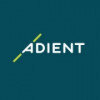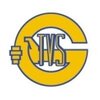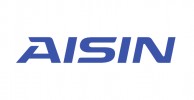Filter interviews by
Nissin Brake Production Supervisor Interview Questions and Answers
Nissin Brake Production Supervisor Interview Experiences
2 interviews found
I applied via Campus Placement and was interviewed in Nov 2021. There was 1 interview round.
Interview Questionnaire
1 Question
- Q1. About my engineering
Interview Preparation Tips
I applied via Recruitment Consultant and was interviewed in Aug 2020. There were 3 interview rounds.
Interview Questionnaire
1 Question
- Q1. Sir hitachi comes to what benifits me and sallery and post groth quarry if associate sallery increse then my sallery more increse to associate person
Interview Preparation Tips
Top trending discussions






Interview questions from similar companies

(5 Questions)
- Q1. Like a My study related
- Q2. How many types of brake
- Ans.
There are two main types of brakes: disc brakes and drum brakes.
Disc brakes use calipers to squeeze brake pads against a rotor to slow down the vehicle.
Drum brakes use brake shoes that press against the inside of a drum to slow down the vehicle.
- Q3. How to work Piston
- Ans.
To work a piston, it must be properly lubricated and connected to a crankshaft to convert linear motion into rotational motion.
Ensure the piston is properly lubricated to reduce friction and wear
Connect the piston to a crankshaft to convert linear motion into rotational motion
Monitor piston movement for any abnormalities or malfunctions
- Q4. How many types of Engine
- Ans.
There are two main types of engines: internal combustion engines and external combustion engines.
Internal combustion engines: gasoline engines, diesel engines
External combustion engines: steam engines
Other types include rotary engines, electric engines, etc.
- Q5. Why 2 stroke engine is powerful than 4 stroke engine
- Ans.
2 stroke engines are more powerful than 4 stroke engines due to their higher power-to-weight ratio and faster combustion process.
2 stroke engines have a power stroke for every revolution of the crankshaft, while 4 stroke engines have a power stroke every other revolution.
2 stroke engines have a simpler design with fewer moving parts, leading to less friction and more efficient power output.
2 stroke engines have a faste...

Production Supervisor Interview Questions & Answers
Global Autotechposted on 15 Jan 2021
I applied via Company Website and was interviewed in Dec 2020. There was 1 interview round.
Interview Questionnaire
1 Question
- Q1. Programing
Interview Preparation Tips

An aptitude test is designed to assess an individual's ability to perform certain tasks or react to a range of different situations. These tests are often used by educational institutions and employers to evaluate potential candidates' skills, talents, and potential for success in a specific role or academic program. Here are some key details about aptitude tests:
1. **Purpose**: Aptitude tests are used to measure a variety of skills, including logical reasoning, verbal ability, numerical skills, and spatial awareness. They help to identify strengths and weaknesses and predict future performance.
2. **Types**:
- **Verbal Reasoning**: Assesses understanding and reasoning using concepts framed in words.
- **Numerical Reasoning**: Tests ability to work with numbers, including basic arithmetic, data interpretation, and logical problem-solving.
- **Abstract Reasoning**: Evaluates the ability to identify patterns, logical rules, and trends in new data.
- **Mechanical Reasoning**: Measures understanding of mechanical and physical principles.
- **Spatial Reasoning**: Assesses the ability to visualize and manipulate objects.
3. **Format**: Aptitude tests can be multiple-choice, true/false, or involve practical problem-solving tasks. They are often timed, with specific sections dedicated to each type of reasoning.
4. **Preparation**:
- **Practice Tests**: Taking practice tests helps familiarize with the format and types of questions.
- **Study Guides**: Reviewing basic concepts in mathematics, grammar, and logical reasoning.
- **Skills Development**: Enhancing skills through puzzles, reading, and other related activities.
5. **Usage**:
- **Recruitment**: Employers use aptitude tests to screen job applicants and find the best fit for a role.
- **Education**: Schools and colleges use these tests for admissions, placement, and identifying areas for student improvement.
- **Career Counseling**: Helps individuals understand their strengths and areas for improvement, guiding career choices.
6. **Scoring**: Scores are typically presented as percentiles, showing how a test-taker compares to a norm group. Higher scores indicate better performance relative to the norm group.
If you have specific questions about a certain type of aptitude test or need preparation tips, feel free to ask!
(2 Questions)
- Q1. Tell me about yourself.Tip: Provide a brief overview of your professional background, focusing on experiences relevant to the job you're applying for. Highlight your key achievements and skills.
- Q2. Know YourselfAssess and interest.
Interview Preparation Tips

Production Engineer Interview Questions & Answers
Seoyon E-hwa Automotiveposted on 26 Oct 2024
I applied via Approached by Company and was interviewed in Sep 2024. There was 1 interview round.
(1 Question)
- Q1. Machine related questions Ans Injections moulding horizontal type machine handle

Production Engineer Interview Questions & Answers
Allied Jb Frictionposted on 20 Sep 2022
I applied via Approached by Company and was interviewed in Aug 2022. There were 3 interview rounds.

(3 Questions)
- Q1. About your Past experience and jobs responsibility ,work knowledge , Machine related Molding process , material preperation process ,job responsibilities and shift handling, production planning, Technical ...
- Q2. About job Responsibilities and Molding production engineering
- Q3. How to improve productivity and control Rejection
- Ans.
To improve productivity and control rejection, focus on process optimization, employee training, and quality control measures.
Analyze current production processes and identify areas for improvement
Implement lean manufacturing principles to eliminate waste and increase efficiency
Provide regular training and development opportunities for employees
Establish quality control measures to catch defects early and prevent rejec...
(2 Questions)
- Q1. What is your basic knowledge and strength
- Q2. Work cultures and company management
Interview Preparation Tips

I applied via Naukri.com and was interviewed in Jun 2022. There were 2 interview rounds.

(2 Questions)
- Q1. Conventional machine/ non conventional machine. Knowledge of CNC,VMC, SPM Knowledge of quality control and quality assurance. Knowledge of machine maintenance
- Q2. Have good knowledge of production documents used in production department
Interview Preparation Tips
- Production documents
- Machine Maintenance
- Quality Check
I am pursuing D.voc mechanical manufacturing engineering cource from svsu University Dhudhola Haryana. Course direction 3 year divided two part 1 year 6 months On Job training.
and 1 year 6 months theoretically class.

I applied via Walk-in and was interviewed before May 2023. There were 2 interview rounds.
(1 Question)
- Q1. CAD Test - Need to create Parametric CAD model and its drawing within 45 minutes.
(1 Question)
- Q1. 1. Basic Settings System related questions like Function of seat. 2. Regulations which need to consider while designing the product. 3. Timeline and phases of project. 4. Test details which are going to pe...
Interview Preparation Tips
- Seating System

I applied via Walk-in and was interviewed in Oct 2021. There were 4 interview rounds.
Interview Questionnaire
6 Questions
- Q1. Plz introduce your self.
- Q2. What is difference between petrol engine & diesel engine.
- Ans.
Petrol engines use spark ignition while diesel engines use compression ignition.
Petrol engines use spark plugs to ignite the fuel-air mixture, while diesel engines rely on compression to ignite the fuel.
Petrol engines typically have higher RPM (revolutions per minute) compared to diesel engines.
Diesel engines are more fuel-efficient than petrol engines.
Petrol engines are generally lighter and more compact than diesel e...
- Q3. Types of brakes
- Ans.
Types of brakes include disc brakes, drum brakes, regenerative brakes, and hydraulic brakes.
Disc brakes use calipers to squeeze brake pads against a disc rotor.
Drum brakes use brake shoes that press against the inside of a drum.
Regenerative brakes convert kinetic energy into electrical energy to recharge the battery.
Hydraulic brakes use fluid pressure to apply force to the brake pads or shoes.
- Q4. How many years or months of experience.
- Q5. Where are you stay in pithampur .
- Q6. Why are resign to previous company
Interview Preparation Tips
Tell us how to improve this page.
Nissin Brake Interviews By Designations
- Nissin Brake Production Supervisor Interview Questions
- Nissin Brake Senior Engineer Interview Questions
- Nissin Brake DET Interview Questions
- Nissin Brake Diploma Trainee Engineer Interview Questions
- Nissin Brake Electrical Engineer Interview Questions
- Nissin Brake Junior Engineer Production Interview Questions
- Nissin Brake Production Interview Questions
- Nissin Brake Production Engineer Interview Questions
- Show more
Interview Questions for Popular Designations
- Production Engineer Interview Questions
- Production Manager Interview Questions
- Production Officer Interview Questions
- Executive Production Interview Questions
- Production Interview Questions
- Senior Production Engineer Interview Questions
- Production Chemist Interview Questions
- Production Operator Interview Questions
- Show more
Nissin Brake Production Supervisor Interview Process
based on 1 interview
Interview experience
Production Supervisor Interview Questions from Similar Companies
Nissin Brake Production Supervisor Reviews and Ratings
based on 15 reviews
Rating in categories
|
Diploma Trainee Engineer
254
salaries
| ₹1 L/yr - ₹3 L/yr |
|
Production Supervisor
76
salaries
| ₹1.9 L/yr - ₹3.6 L/yr |
|
Supervisor
53
salaries
| ₹2 L/yr - ₹3.5 L/yr |
|
Production Engineer
51
salaries
| ₹2.2 L/yr - ₹5.2 L/yr |
|
Junior Engineer
41
salaries
| ₹2 L/yr - ₹4.5 L/yr |

Bosch

Continental

ZF Steering Gear
ZF Commercial Vehicle Control Systems
- Home >
- Interviews >
- Nissin Brake Interview Questions >
- Nissin Brake Production Supervisor Interview Questions















